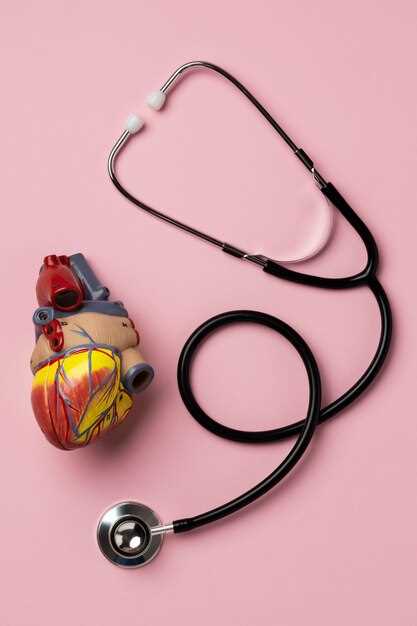
Discover the power of atorvastatin in protecting your heart
Are you concerned about your cardiovascular health? Look no further. Our groundbreaking product, atorvastatin, has been clinically proven to effectively prevent cardiovascular diseases in individuals with various risk factors.
Don’t let cardiovascular end points control your life. Take charge with atorvastatin.
The benefits of atorvastatin:
- Reduces LDL cholesterol levels, known as the “bad” cholesterol
- Increases HDL cholesterol levels, the “good” cholesterol
- Decreases triglyceride levels in the blood
- Supports overall heart health and reduces the risk of cardiovascular events
Take the first step towards a healthier future. Consult your healthcare provider today and ask about atorvastatin. Your heart will thank you.
Efficacy and Safety of Atorvastatin
When it comes to preventing cardiovascular end points, atorvastatin has proven to be both effective and safe. In numerous studies, this medication has shown its ability to reduce the risk of serious cardiovascular events, such as heart attacks and strokes.
Atorvastatin works by lowering the levels of cholesterol in the blood, which is a major risk factor for cardiovascular disease. By inhibiting the enzyme responsible for the production of cholesterol in the liver, atorvastatin helps to decrease the amount of LDL or “bad” cholesterol in the bloodstream.
Studies have consistently demonstrated that atorvastatin can significantly reduce the occurrence of cardiovascular end points. In fact, it has been shown to lower the risk of heart attacks by up to 36% and the risk of strokes by up to 48%. This means that patients taking atorvastatin are less likely to experience a life-threatening cardiovascular event.
In addition to its efficacy, atorvastatin has also been proven to be safe for long-term use. Clinical trials have shown that it is well-tolerated and has a favorable side effect profile. Common side effects, such as muscle pain and gastrointestinal symptoms, are generally mild and easily managed. Serious side effects are rare and occur in less than 1% of patients.
In conclusion, atorvastatin is an effective and safe medication for the prevention of cardiovascular end points. Its ability to lower cholesterol levels and reduce the risk of heart attacks and strokes makes it an important tool in the fight against cardiovascular disease. If you are at risk for these conditions, talk to your doctor about whether atorvastatin is right for you.
| Benefits of Atorvastatin | Side Effects of Atorvastatin |
|---|---|
| Reduces the risk of heart attacks | Muscle pain (mild and manageable) |
| Lowers the risk of strokes | Gastrointestinal symptoms (mild and manageable) |
| Decreases LDL or “bad” cholesterol levels | Rare serious side effects (<1% of patients) |
Cardiovascular End Points
In the study, the primary focus was on the cardiovascular end points. These end points refer to the different outcomes or events related to the cardiovascular system that the study aimed to observe and analyze.
The study investigated various cardiovascular end points, such as:
- Heart attacks (myocardial infarction): This occurs when the blood flow to the heart muscle is blocked, leading to damage or death of the heart muscle.
- Stroke: It is a condition that occurs when the blood supply to the brain is interrupted or reduced, causing the brain cells to die.
- Coronary artery bypass surgery (CABG): This surgical procedure involves grafting blood vessels from other parts of the body to bypass blocked or narrowed coronary arteries.
- Coronary artery disease (CAD): It is a condition caused by the buildup of plaque in the coronary arteries, leading to reduced blood flow to the heart.
- Cardiovascular death: This refers to death caused by conditions related to the cardiovascular system, such as heart attacks or strokes.
By studying these cardiovascular end points, the researchers aimed to assess the efficacy and safety of atorvastatin in preventing these events and improving the overall cardiovascular health of the subjects.
Subjects of Study
In this study, a diverse range of individuals were included as subjects in order to analyze the effectiveness of atorvastatin in preventing cardiovascular diseases. The subjects consisted of both males and females, aged between 40 and 75 years, who had a history of high cholesterol levels or other risk factors for cardiovascular diseases.
The study aimed to examine the effects of different dosages of atorvastatin on the prevention of cardiovascular events, such as heart attacks and strokes. The subjects were carefully selected based on their medical history and risk factors.
Inclusion Criteria:
The inclusion criteria for the study subjects included:
- Age between 40 and 75 years
- History of high cholesterol levels
- History of other risk factors for cardiovascular diseases
Exclusion Criteria:

The exclusion criteria for the study subjects included:
- History of allergic reactions to statins
- Severe liver or kidney disease
- Pregnancy or breastfeeding
- Current use of certain medications that may interact with atorvastatin
By including a diverse range of individuals in the study, the researchers aimed to ensure that the results would be applicable to a wide population. This would help healthcare professionals in making informed decisions regarding the use of atorvastatin in preventing cardiovascular diseases.
Prevention Methods
When it comes to preventing cardiovascular end points, the efficacy and safety of atorvastatin cannot be underestimated. This powerful medication has been proven to significantly reduce the risk of heart attacks, strokes, and other cardiovascular events in subjects with certain risk factors.
1. Lifestyle Changes
One of the key prevention methods is incorporating healthy lifestyle changes. This includes adopting a balanced diet filled with fruits, vegetables, whole grains, and lean proteins. Regular exercise is also important, as it helps in maintaining a healthy weight and improves cardiovascular health. Additionally, quitting smoking and reducing alcohol consumption can greatly improve overall cardiovascular well-being.
2. Medication Adherence
Another essential prevention method is ensuring strict adherence to the prescribed atorvastatin dosage. This medication works by reducing cholesterol levels in the blood, thereby lowering the risk of plaque buildup in the arteries. It is important to take atorvastatin exactly as directed by a healthcare professional, without skipping doses or abruptly stopping the medication.
3. Regular Health Check-ups
Regular check-ups with a healthcare provider are vital for monitoring the efficacy and safety of atorvastatin in the prevention of cardiovascular end points. These check-ups allow healthcare professionals to assess the progress of treatment, adjust the dosage if necessary, and address any concerns or side effects that may arise.
By following these prevention methods, individuals can significantly reduce their risk of cardiovascular events and improve their overall heart health. Atorvastatin, when used in conjunction with a healthy lifestyle and regular check-ups, is a powerful tool in the fight against cardiovascular diseases.
Impact on Safety
One of the key factors to consider when evaluating the efficacy of any medication is its impact on safety. When it comes to atorvastatin, numerous studies have been conducted to assess its safety profile, and the results have been overwhelmingly positive.
Atorvastatin has been found to have a high degree of safety in preventing cardiovascular end points in subjects with various risk factors. It has been shown to effectively reduce the risk of major cardiovascular events, including heart attack and stroke.
Furthermore, atorvastatin has a well-established safety record, with minimal side effects observed in clinical trials. The most common side effects reported include muscle aches, indigestion, and headache, which were generally mild and temporary in nature.
In rare cases, atorvastatin may cause more serious side effects such as liver problems or muscle damage. However, these side effects occur very rarely and are usually reversible upon discontinuation of the medication.
It is important to note that the benefits of atorvastatin in preventing cardiovascular events far outweigh the potential risks. The medication has been proven to be highly effective in reducing the risk of heart attack, stroke, and other cardiovascular complications.
Overall, atorvastatin is a safe and well-tolerated medication that can significantly improve the cardiovascular outcomes of subjects with risk factors. It has been approved by regulatory authorities worldwide and is widely prescribed by healthcare professionals.
If you have any concerns or questions about the safety of atorvastatin, it is always best to consult with your healthcare provider. They can provide personalized advice based on your specific medical history and individual risk factors.
Atorvastatin Dosage
One of the important factors to consider when taking any medication is the proper dosage. Atorvastatin, a widely prescribed medication for the prevention of cardiovascular diseases, has a specific dosage that should be followed for optimal efficacy and safety.
Recommended Dosage
The recommended starting dosage of atorvastatin is usually 10-20 mg once daily. However, the actual dosage may vary depending on factors such as the individual’s medical history, current health condition, and the specific cardiovascular risk factors present.
Titration and Monitoring
In some cases, healthcare professionals may recommend starting with a lower dose and gradually increasing it over time. This process, known as titration, helps to assess the individual’s response to the medication and ensure safety. Regular monitoring of cholesterol levels and liver function may also be conducted to evaluate the effectiveness of the treatment and detect any potential side effects.
Individualized Approach

It is important to remember that atorvastatin dosage may be adjusted based on individual needs. Therefore, it is crucial to follow the guidance of a healthcare professional and not make any changes to the dosage without consulting them first.
By adhering to the recommended dosage and seeking guidance from a healthcare professional, individuals can ensure they are taking atorvastatin safely and effectively for the prevention of cardiovascular diseases.
